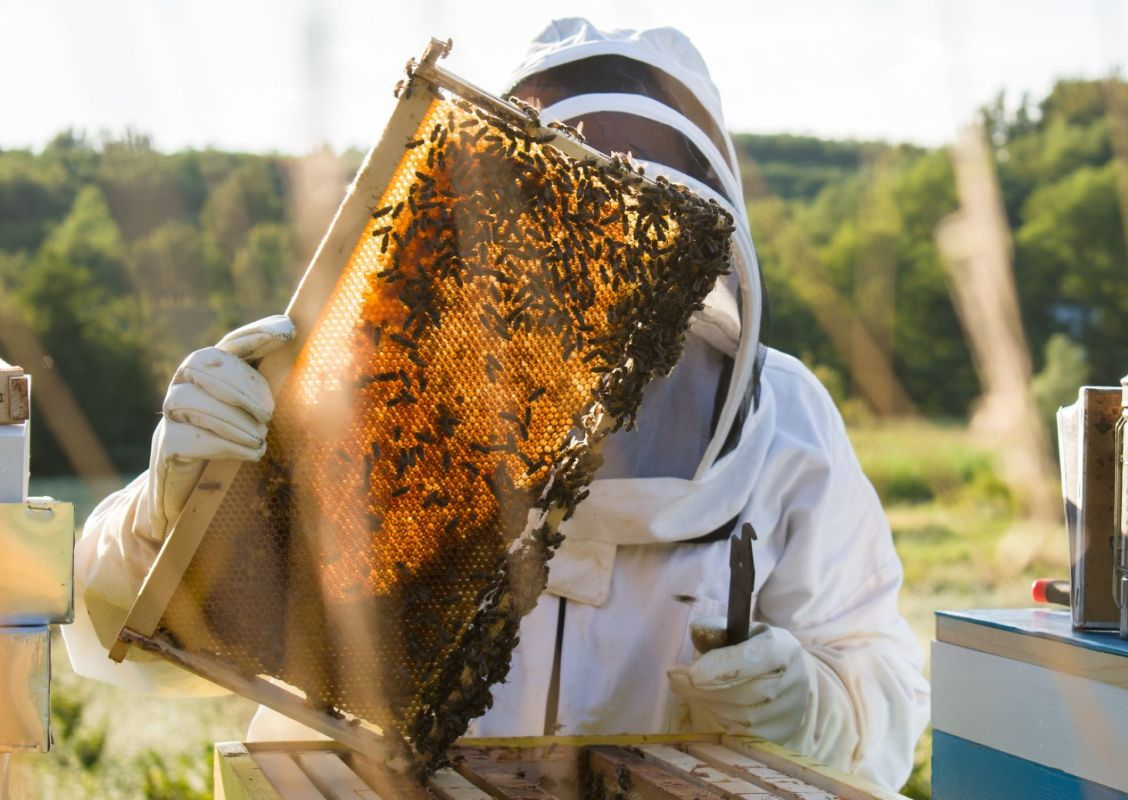A new program in Kyrgyzstan, a country in Central Asia, is helping herders diversify away from livestock activities to more sustainable practices like beekeeping, agroecology, ecotourism, and handicrafts, to the benefit of locals and leopards.
The local livestock industry has historically presented a major threat to these big cats, who find easy prey in domestic animals and are subsequently killed by herders. This issue, coupled with habitat loss and climate change, has put leopard populations under threat.
"The main dangers for snow leopards are poaching, mining, roads, hunting, and competition with livestock. All of these threats will be amplified by climate change," Koustubh Sharma, the science and conservation director for the Snow Leopard Trust (SLT), said in an interview with Mongabay.
The program, implemented by the SLT and the Snow Leopard Foundation in Kyrgyzstan (SLFK), provides participants with beehives, training, and assistance in education and research related to the nearby snow leopard population.
This work involves monitoring snow leopards with cameras, which, based on current findings, indicate that the local populations and their preferred prey, ibex, are either stable or experiencing growth, according to Mongabay.
Bastien Chaix, a science educator for OSI-Panthera, expressed to Mongabay how "integrating nature conservation with the local economy, in a mutually beneficial way, is the best way to ensure sustainability and gradually eliminate conflicts that may arise."
"By bringing additional income to local communities, it allows them to value wildlife and reduce their economic dependence on domestic livestock, and the problems of cohabitation with wildlife," he concluded.
Fifty percent of the honey profits are reinvested into the program with the aim of improving beekeeping education, acquiring necessary supplies, and supporting environmental initiatives selected by the participants.
Asanbek Sasukilov, a beekeeper and herder involved in the program, produced 181 pounds of honey last year. Following the economic model managed by the Snow Leopard Trust, the income was distributed accordingly.
Initially, the beekeepers and their apprentices kept 50%. Despite sharing a significant portion of the profits, Sasukilov earned approximately $180 during the previous season, an average farmer's salary in the rural areas of Kyrgyzstan.
The program's future objectives center around expanding various activities, including traditional felt handicrafts and ecotourism with a particular emphasis on wildlife observation, all of which aim to help the local community and will also benefit the snow leopards.
"By giving them materials and training, we promote alternative sources of income through beekeeping, fruit and berries, agroecology production, and ecotourism," says Kubanychbek Jumabaev, director of the SLFK. "It is crucial to reduce competition with wild fauna."
Join our free newsletter for cool news and cool tips that make it easy to help yourself while helping the planet.









